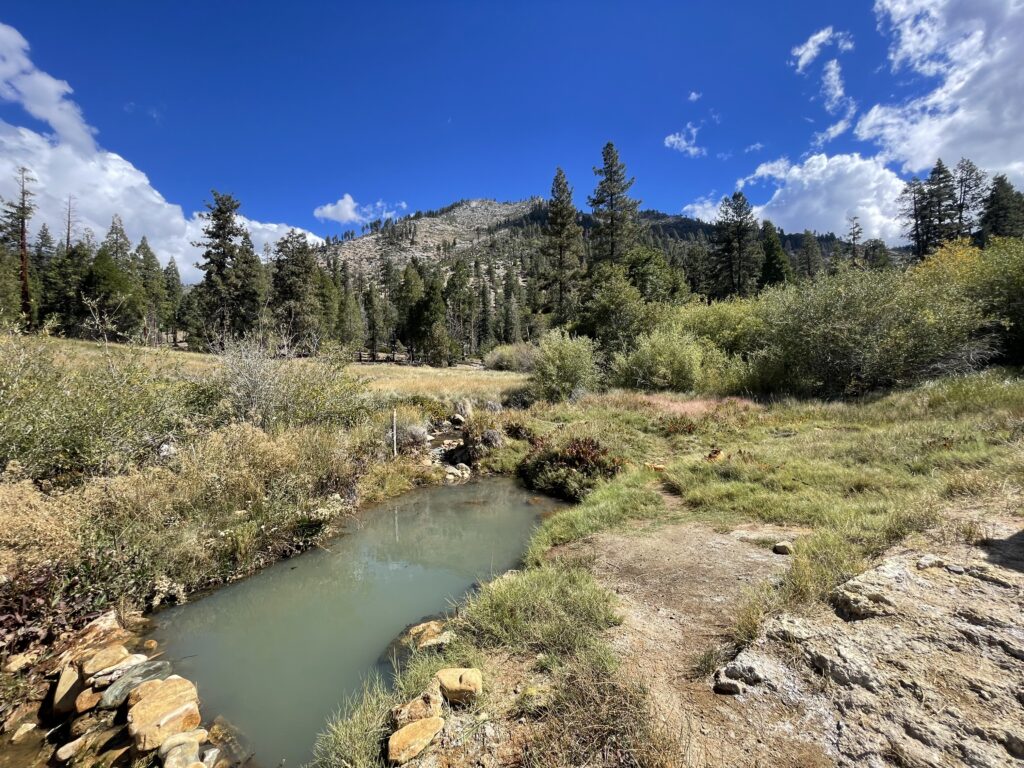How to prepare for a high-altitude hike.
Are you jonesing to go fishing in some alpine lakes? Or bag that bucket list peak? If so, it’s a good idea to become acclimated before your trip. What does that mean? It means that understanding how to prepare for a high-altitude hike is of utmost importance when going on any trip that exceeds 8,000 ft in elevation.
The most important thing to remember when hiking and backpacking at a higher elevation, is that if you start feeling unwell, get yourself to a lower elevation immediately. This will most likely mean turning back. Walking back is much better than having to get airlifted out, or even worse, not making it out alive.
Planning months in advance as well as taking strategic steps right before your trip can have an impact on how well you acclimate. If you are looking for strategies on how you can get your body ready for a trip to mountain elevations, stick around for some tips on how to prepare for a high-altitude hike.
Altitude sickness can happen to anyone.
Acute mountain sickness (AMS) is the body’s reaction to not getting enough oxygen; it can affect anyone who goes to a high altitude. Even if you have never experienced difficulties at higher elevations before, AMS can sneak up on you at any time while in the mountains. Read more about AMS here.
According to The Cleveland Clinic, there are some things that may increase your risk of developing AMS while out on a hike. Everyone should consult their doctor if they are planning to hike in the higher elevations, but some groups are particularly at risk. Take a look at the following conditions to see if you fall into that category.
- You live at a lower elevation: If you live at a very low elevation, your body is used to getting a plethora of oxygen. When the difference in elevation is greater because of this, your chances increase.
- You are pregnant: It’s vital you check with your physician if you are pregnant and planning a high-altitude hike.
- You have a lung or heart condition: Make sure you check with your doctor, lung or heart conditions can be exacerbated in high altitude hikes.
- You have had AMS before: Even though experts agree that AMS can affect anyone at any time during a high-altitude hike, if you have experienced AMS before, there is a chance you will have it again.
Experts at Harvard Heath list the following symptoms of AMS to look out for. Friends who have succumbed to this condition describe it as a really bad hangover. These acute (mild) symptoms can turn into a life-threatening condition if not taken seriously.
Symptoms of acute mountain sickness can include:
- Headache that is not relieved by over-the-counter pain medicine.
- Nausea or vomiting
- Dizziness or lightheadedness
- Weakness or fatigue
- Difficulty sleeping
- Loss of appetite
Preparation in the weeks leading up to your trip.
- Try to spend a night or two at the highest possible elevation in the weeks leading up to your trip.
- Hike to high points as often as possible to condition your muscles.
- Take a look at what’s in your pack and find ways to lighten your pack weight.
- Ask your doctor about prescription medications that aid in the prevention of AMS.
How to prepare for a high-altitude hike in the days leading up to your trip.
- Try and find high a campsite near the trailhead for the night before your hike. (Or preferably two)
- Try to hike to a higher elevation than where you’ll be camping near the trailhead.
- Make sure you are hydrated and drinking a lot of water.
- Avoid alcohol in the days leading up to your trip.
- Make sure your group has a plan in case someone needs to turn back.
Staying pro-active during your trip.
- Always stay hydrated. Drink water and make sure your pee is clear.
- Bring your favorite snacks and make sure to stay fueled up.
- GO SLOW: This is so important! The slower you go, the easier it is for your body to acclimate.
- Take a lot of breaks.
- If you don’t feel good, stop and take a break. If you still don’t feel good, go back down, you may need to skip the trip to avoid becoming a liability.
- Hike high and camp low if possible.
- It can take 3-4 days for the onset of AMS so keep that in mind.
- Avoid alcohol.
- Monitor for signs and/or symptoms.
Now you know how to prepare for a high-altitude hike.
The last thing you need is to have to bail out on a trip because of AMS; especially if you worked hard to get permits so it makes sense to do what you can to avoid it. Hopefully by now have a few strategies on how to prepare for a high-altitude hike or backpacking trip. See you on the mountain!










1 thought on “How to prepare for a high-altitude hike”
Comments are closed.